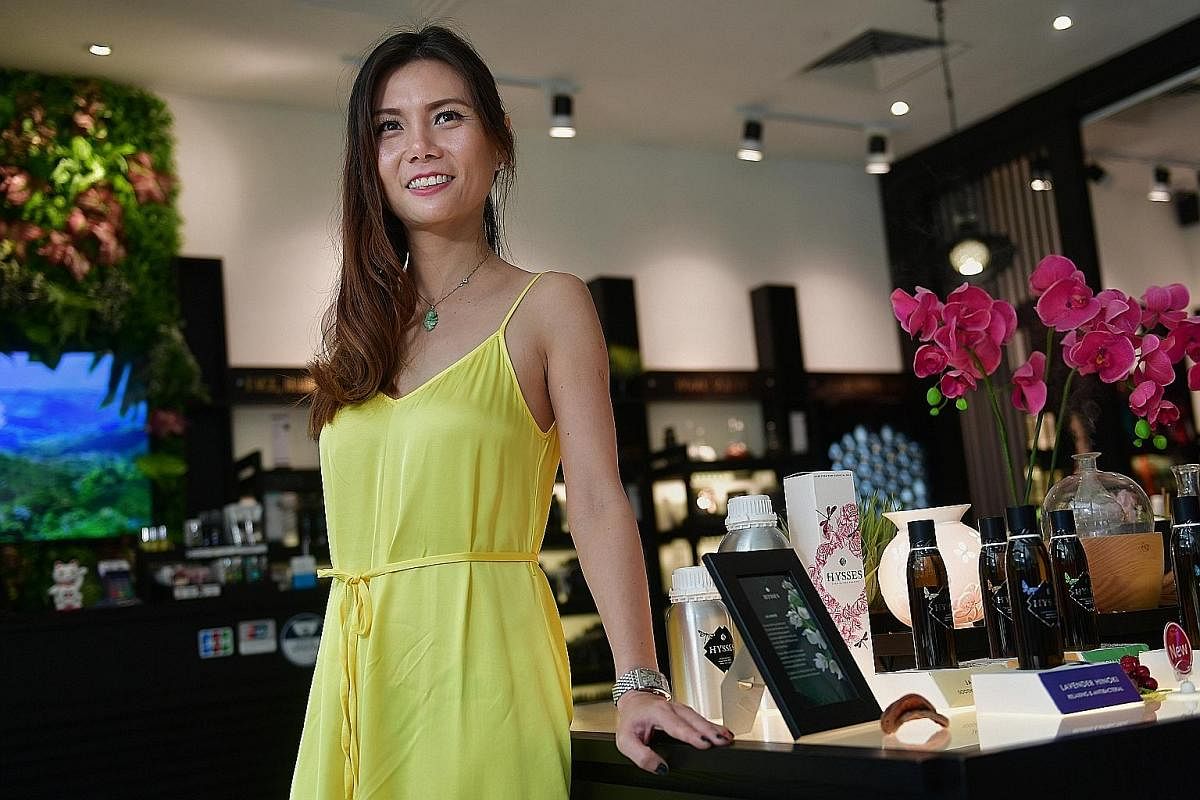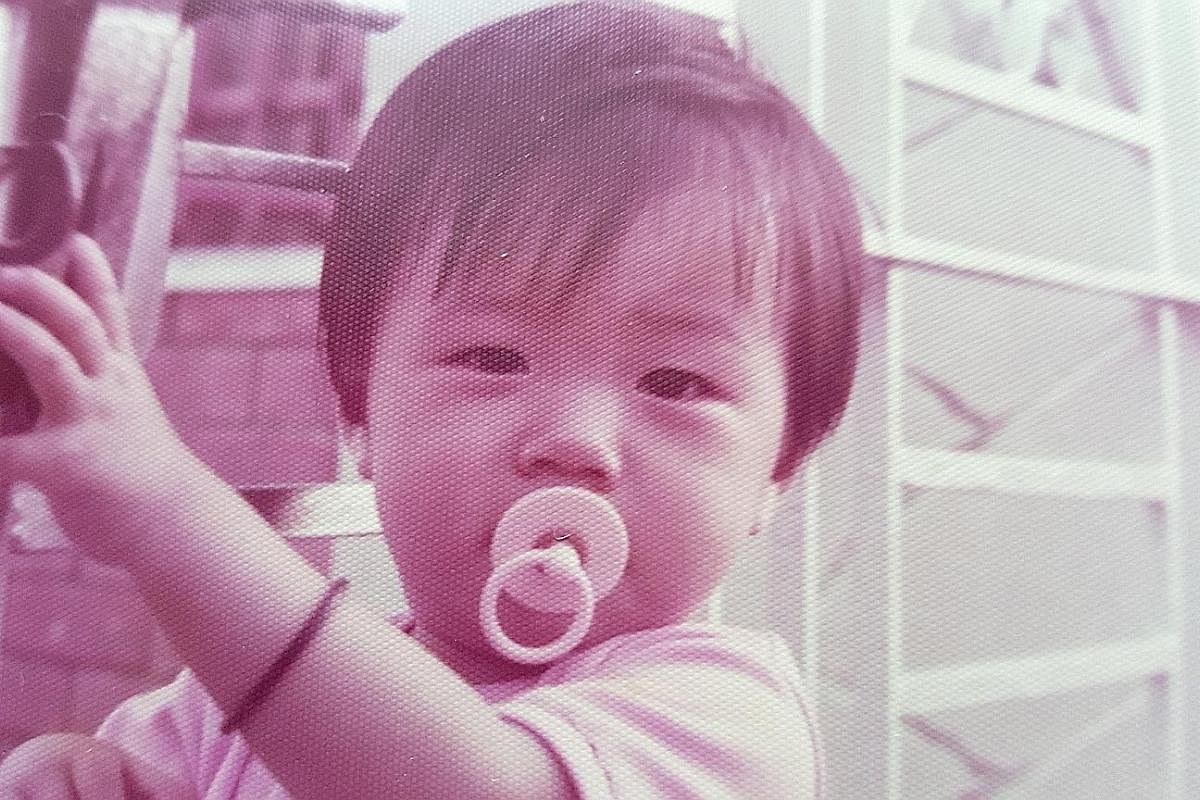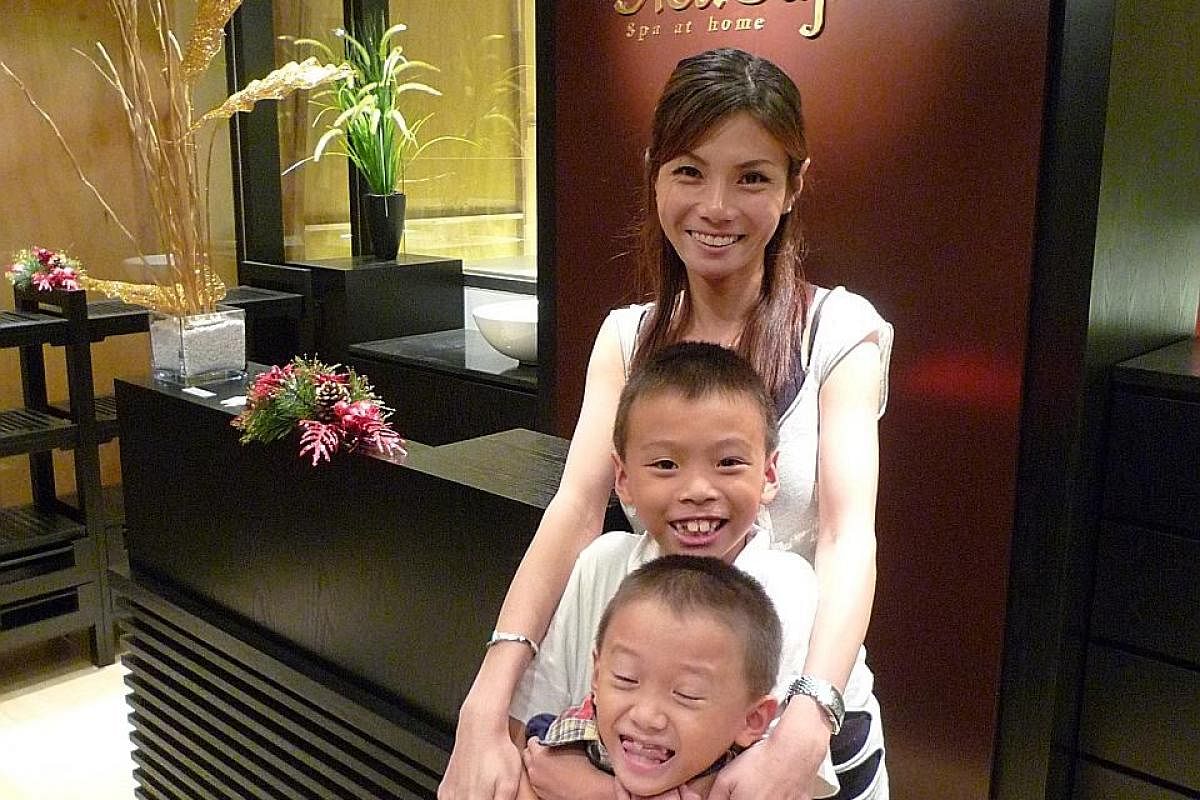The Life Interview With Cheryl Gan
The Life Interview: Cheryl Gan grows local aromatherapy brand Hysses
Aromatherapy company Hysses founder Cheryl Gan has grown the label from one small store to 14 in Singapore



Ms Cheryl Gan, founder and managing director of home-grown aromatherapy company Hysses, does not let anything stand in the way of achieving her dreams.
As a teenager, she was adamant about going to university after visiting the National University of Singapore because she fell in love with how modern and big the campus was as it had lifts.
She worked hard and snagged a place in the computer engineering faculty at Nanyang Technological University, thinking it would lead her to design computer games. But she realised it was not her cup of tea.
She struggled through the three-year course with the help of a friend, if only to become a university graduate.
Years later, she dreamt of becoming an entrepreneur and decided to sell tau huay (soya beancurd) even though she did not know how to make the dessert. Her first batch was a disaster - her friends gulped it down without comment.
Not one to quit, she thought she would have a go at selling all-natural aromatherapy products such as oils and soaps, after visiting a tradeshow for the first time.
Now, at age 40, she helms a business that earns more than $10 million in revenue every year from her 14 Singapore stores alone.
Another Singapore store and an online shop will soon be launched, but Ms Gan has set her sights further - taking the brand to London and eventually the rest of the European market.
"I want a bigger playground to play in. I'm stepping out of my comfort zone to see how I can do more beyond Singapore," says Ms Gan, who is a mother of four children aged between three and 15.
Ten years ago, she was shopping at a trade fair in Thailand, looking to buy a small batch of all-natural aromatherapy products for her own use.
By chance, she met a Thai producer, whom she declines to name, who was making his wares with natural herb extractions. At that time, he was supplying the goods to other businesses and was not a retailer.
They agreed to go into business together and created Mt. Sapola, an aromatherapy label that carried soaps, essential oils and body products that were made in Thailand.
She and her husband, Mr Low Cheong Yew, 50, who is a co-founder and director at home-grown hardware store Home-Fix, put in about $30,000 of their savings into the business at the start.
She did not anticipate how successful the business would become.
"The plan was just to start small. I didn't think so far ahead."
In a decade, the brand grew into a fully fledged business and Ms Gan opened 14 stores in Singapore and seven in Malaysia. Her Thai partner opened and managed stores in Thailand on his own.
In August, Mt. Sapola stores here and in Malaysia were relaunched under a new brand called Hysses, featuring a new logo and brand identity.
The name Hysses is an artistic take on the Chinese word for native village. The brand has more than 25,000 local consumers in its database today.
The Thai stores are now a separate entity and retain the Mt. Sapola name, which was trademarked there. Her Thai partner is not involved with Hysses, but together, they will launch an online store for the Mt. Sapola brand.
Ms Gan says: "I wanted to bring our products to Europe, but he wasn't keen on exploring that market, so I'm doing it alone with Hysses. He's fine with it. He has his other retail brands that he's focused on too."
She is very much a hands-on boss, working from Hysses' headquarters in Tai Seng, where she runs the day-to-day operations such as monitoring the productivity of the production facilities and business development. Hysses products are formulated, tested and made in Singapore.
She also visits the stores and its managers to check on progress.
It is the way she has run the business since day one, when the first Mt. Sapola store opened in Tanglin Mall. Back then, Ms Gan managed the shop with another employee and some part-timers.
The set-up was so simple that she did not even have a warehouse to store the goods when they were delivered from Thailand. With the help of friends, she stuck on labels and price tags in the mall's carpark after closing hours.
"I was so busy and tired running the store, I didn't have time to think about anything. It was work that had to be done, so I just did it," she recalls.
Ms Gan, who left her job as a civil servant to start Mt. Sapola, had to learn fast how to run a business.
"I was the human resource person, who did marketing and manned the shop. I didn't even have employment contracts and I had employees who stole from the shop because it was easy to take things. Many systems and processes not in place," she says.
At that time, too, she says many Singaporeans were not familiar with what aromatherapy was.
Mr Low, who oversees the brand's finances, picked the Tanglin location as there were more expatriates who frequented the mall and were more likely to know about aromatherapy products.
Ms Gan says: "People would come into the shop and smell the lemongrass scent and say, 'Oh, this is for tom yum.' The consumer had to be educated. Now, more people know that it can be used as an insect repellent too."
As she opened more stores, she faced challenges such as having to give regular customers more product choices. Her Thailand business partner did not face the same problem because he has a much bigger consumer market.
Ms Gan, who talks to customers in-store and now holds focus groups to get feedback, says: "My partner was focused on opening more stores, but I needed new products because customers here would get bored. So, in that way, our business directions didn't align. But he gave his blessing for me to develop a certain product range."
In 2010, she created Barn & Potter, a laboratory with its own manufacturing arm to design and make products such as diffusers and candle burners. Subsequently, the product line expanded to include more essential oils, and facial and body products.
Stores are like her babies
By 2013, at least 60 per cent of the retail products were manufactured and packed in Singapore. These were not carried in the Thai stores as her Thai partner decided to stick with the products he had manufactured himself.
Some new items such as the Bergamot Geranium scent were a hit in Singapore and Malaysia. Overseas distributors came knocking, asking to sell these products in their stores.
Three years ago, she entered the Taiwanese market, opening a store-within-a-store while she was six months pregnant with her youngest child.
Barefoot and sweaty, she pitched in with the overnight set-up to get the store ready for its opening. "It was the start of the brand's Taiwan journey and I wanted to be there," says Ms Gan, who worked till the day she gave birth.
She laughs at the suggestion that she is a workaholic, but admits that others might describe her as one. Even when she was pregnant with her first two children - this was before she started Mt. Sapola - she would put in the necessary hours.
"I don't mind hard work and I have a high expectation of myself. Even when I was pregnant, I would just work. It's just a matter of being responsible."
Her husband is not surprised by her dogged perseverance to get what she wants. The couple, who were introduced to each other by a mutual friend, got married in 2002 after a year of courtship.
Mr Low, who has been a businessman for 30 years, says: "She'll come to me for advice, but I admire her determination to do things her way. She knows what she wants and is career-minded. Compared with me, she's still new at business, but has a different way of looking at things."
But business has not always been rosy. Her move into the Taiwanese market did not go as planned and she made the "painful" decision to close it down last year because of poor management. Ms Gan says: "Every store I open is like my baby. It's hard work to get it open, but not everyone will share your commitment."
Instead of wallowing in the loss, she focused on the rebranding and researching the London market.
That drive to do better and find new opportunities has been ingrained in her since she was a child.
Her businessman father, who travelled often for work, was largely absent from her life.
Her mother was a housewife who raised three children herself. Ms Gan is the eldest and has two younger brothers.
Her father owned another property, so the family, who lived in an old single-storey terrace house in Hougang, got by with the rent they collected. They were not poor, but they had to be frugal, says Ms Gan. Her parents later divorced when she was in her 20s.
"I saw how my mother was dependant on her husband. That was so hard on her, so I knew I wanted to be independent. It's also in my personality. I don't like to ask people for things," she says.
As a student at Bendemeer Secondary School, she took on holiday jobs such as counting cloth at a garment factory, earning $3 an hour, and being a toy promoter at a department store.
That enthusiasm to do new things and her "talking skills" came in handy when she was at her first job as a programmer at an IBM subsidiary company. She also did sales presentations, which she was good at, and eventually she switched teams.
Later on, when she was a civil servant at the Singapore Workforce Development Agency, which is now known as Workforce Singapore, she took a course at a beauty school where she learnt to give massages and do facials.
Her children were her guinea pigs. Her search for all-natural products led her to Thailand and kick-started her business.
She left her job to focus on the venture, despite the enormous risks involved. "I enjoyed my job as a civil servant. I thought it was a place where I would grow old in, so I was torn about leaving. But I didn't want to regret not starting my own business, so I decided to take the plunge."
From running her first shop on her own, Ms Gan now has about 100 employees in Singapore.
She puts in long hours at the office and often works late into the night. "I can be sending e-mail at 1am. Of course, I don't expect my staff to answer. If I have things that are bothering me, I can't eat or sleep - I need to find a solution."
She counts herself lucky that her mother, mother-in-law and domestic helper look after her children when she is at work. Mr Low, too, looks after the brood when Ms Gan is tied up with work. But she reserves weekends for the family.
Her mother, Madam Tan Poh Huay, 66, who is a production supervisor at Hysses, never thought her daughter would grow the brand to this size.
"Having four children is already tough, but she also has a business to juggle. From a mother's perspective, it pains me to see her going through these challenges, but I see her enjoying it and it's her passion, so I support her."
Ms Gan makes no apologies for being gung-ho about her career and business.
"I won't put in the hours if I didn't care," she says. "My ultimate goal is for all my people to be part of the company and own it. I'm not chasing profits or thinking about making the money. This is the legacy I want to leave for Hysses."
Join ST's Telegram channel and get the latest breaking news delivered to you.
A version of this article appeared in the print edition of The Straits Times on October 16, 2017, with the headline The Life Interview: Cheryl Gan grows local aromatherapy brand Hysses. Subscribe

